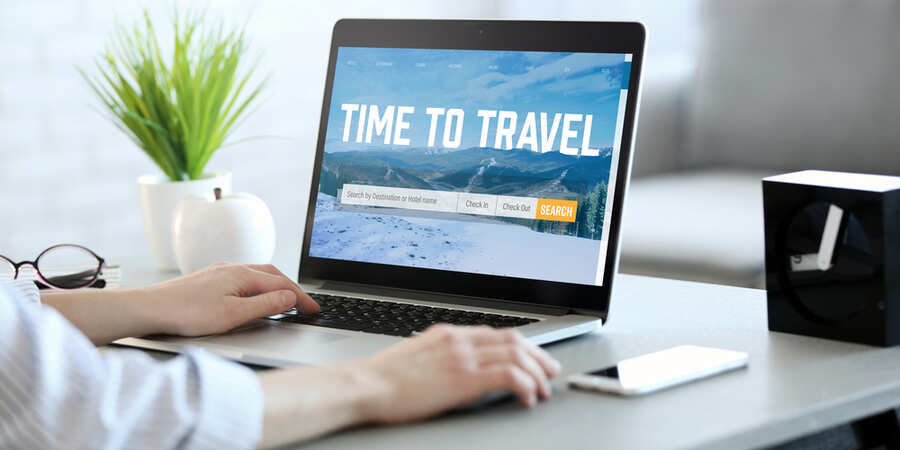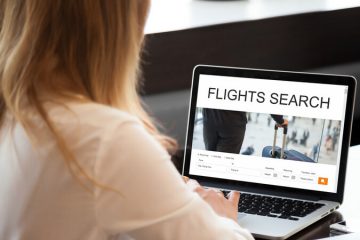People travel for various reasons, like attending a family function, a job interview, a business meeting, seeking adventure, sightseeing, etc. We can broadly classify travelers into two groups. These are business travelers and leisure travelers. Tourist is a common term to describe people traveling for leisure. When comparing business vs leisure travel, one should know that the needs, objectives, and travel patterns of business and leisure travelers are radically different. Whether a leisure or business trip, the trip’s duration can range from less than 24 hours to a couple of months and everything in between. Leisure travel encompasses a broad spectrum of travel activities, including sports, entertainment, and recreation.
Who are leisure travelers?
Leisure travelers are people who travel for personal reasons such as vacations, marriages, etc. They can be divided into various groups such as family travelers, solo travelers, couples and more. The itinerary is highly flexible as individuals can take their own decisions without obligations of fulfilling a role.
Difference between business travel and leisure travel

There is a big difference between business vs leisure travel. The former is carried out with a clear purpose of performing business related activities while leisure travel is done for relaxation and fun. However, there are numerous other differences. We can understand the differences between business vs leisure travel using the following main travel parameters:
1. Purpose of travel
Business travel involves traveling from one’s hometown or headquarters to one or more destinations and staying in hotel accommodations while there to meet clients and other business contacts before returning. The business traveler has a specific purpose, like sales, networking, customer service, project work, training, or conference participation. The purpose of leisure travel is to visit tourist destinations for a vacation. It mainly focuses on recreation and sightseeing. Adventure tourism is also part of leisure travel. People plan leisure travel with family or friends to escape the monotonous routine.
2. Flexibility in time and location
Business travelers have relatively limited flexibility when choosing a hotel or destination for business travel. It is because they need to adhere to a rigid schedule of meetings, appointments, and trade events. Business travelers most often book accommodations near the city center and therefore have a limited choice of accommodations. As business meeting schedules depend upon the availability and convenience of clients, business trips are not flexible in terms of timing. There is no seasonality in business travel, as employees travel on business throughout the year.
Since leisure travel involves recreation, adventure, and entertainment, destinations differ from business travel. They usually head to tourist locations like beaches and resorts rather than cities. The ideal time to travel for leisure is on weekends or vacations. Travel for leisure offers greater flexibility in terms of travel times and accommodations, as tourists do not have to follow strict schedules.
3. Travel cost considerations
Cost considerations are common in business and leisure travel. However, business travel involves a focus on returns on travel expenses. It makes business travel less price sensitive. Companies may allow employees to book business travel with some flexibility for cost consideration in the interest of employee travel experience.
Several studies confirm over 6 out of 10 leisure travelers are price sensitive, as there is no monetary gain from their travel, unlike business travel. Many leisure travelers do not mind postponing their travel plans for better deals on transportation and accommodation. They look for affordable tour packages that include groups of tourists for better cost-effectiveness.
4. Connectivity requirements
Connectivity is crucial for business travel as it helps ensure seamless communications with the office, clients, and line managers. Easy access to high-speed internet is necessary to hold online meetings and access a company’s online ERP system for reporting. Business travelers spend more time away from their near ones and need connectivity to stay in touch. They prefer booking hotels offering round-the-clock access to quality Wi-Fi connectivity. Leisure travel focuses on getting away from the routine, so connectivity is not crucial. Leisure travelers need internet access to book travel and explore tourist destinations online. They may not pay extra to get Wi-Fi facilities in hotels.
5. Hotel amenities
Hotel amenities differ according to whether you are traveling on business or for leisure. Business travelers need essential amenities that support their work and comfort. A work desk, access to a mini meeting room, a fitness center, and plenty of food choices are some amenities a business traveler may need. The hotel room should have sufficient charging points as a business traveler uses several gadgets like a laptop, smartphone, power bank, iPad, and Bluetooth headphones that demand frequent charging.
Leisure travelers look for extras or package deals to improve their travel experience. For leisure travelers, entertainment and recreation facilities are essential. They prefer staying in hotels close to tourist destinations rather than city centers. Amenities for leisure travelers should support family entertainment and relaxation. Spas, swimming pools, good sightseeing places, markets, massage parlors, and pubs are more relevant for leisure travelers.
Conclusion
The travel industry represents the fifth largest industry sector that ranks first by the size of employment across all industry verticals. Business and leisure travel are two main categories that boost the growth of the global travel industry. One must consider the focus of travel to understand the principal differences between business vs leisure travel. Productivity is the focus of corporate travel. Travel managers strive to enhance the travel experience of employees to enhance productivity by booking convenient transportation and comfortable accommodation. Leisure travel focuses on relaxation, fun, entertainment, and recreation. Most leisure travelers opt for economical tour packages, that include travel and accommodation, besides other activities like sightseeing. Additionally, corporate travelers can use Paxes to book the best flights and hotels for their next trip.
Business Vs Leisure Travel FAQs
What is the main difference between business and leisure travel?
Business travel involves working, while leisure travel is purely for relaxation.
Which travel category combines business and leisure?
Bleisure travel is the blend of business and leisure travel.
What is the share of business travel in international travel?
Business travel accounts for 9 percent of international travel.
What are the main activities of leisure travel?
Sightseeing, relaxing, enjoying exotic destinations, eating at popular restaurants, swimming, and spending quality time with family or friends are a few leisure travel activities.
Who bears the cost of business travel?
Organizations pay for business travel for their employees or consultants. Entrepreneurs bear the expenses of their business travel.
What is business leisure travel called?
Business leisure travel is known as Bleisure Travel
What is an example of business travel?
A salesperson traveling to meet potential client for the business is an example of business travel.
What are the benefits of business travel?
Business travel helps in building relationships, conducting businesses, and creating awareness for the brand.
What is leisure in travel?
When individuals conduct travel for relaxations and enjoyment, it is called leisure travel.



